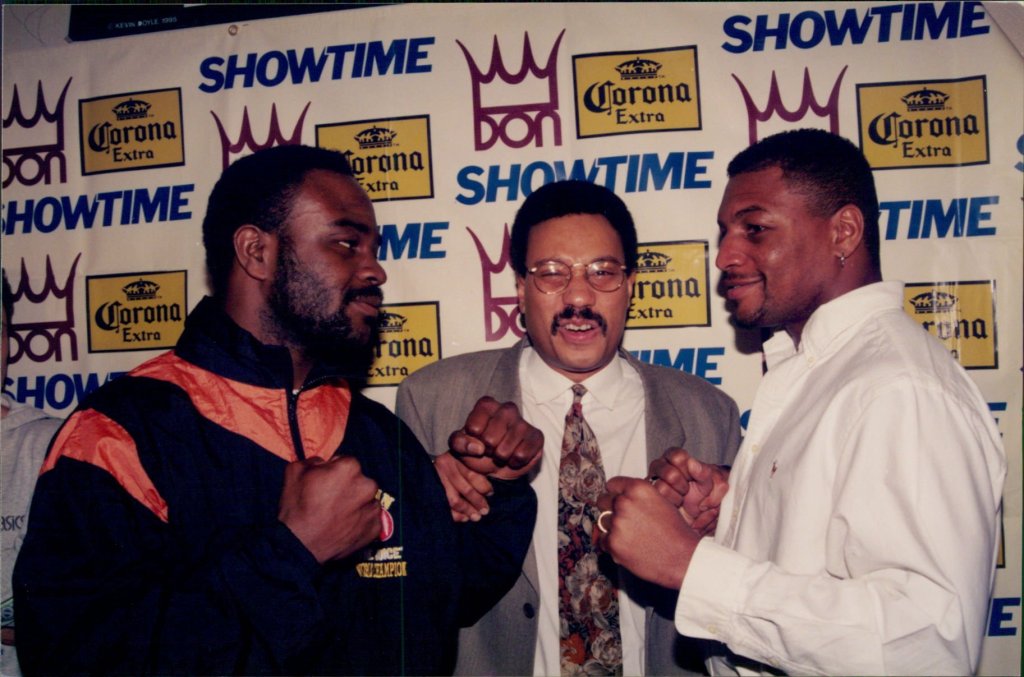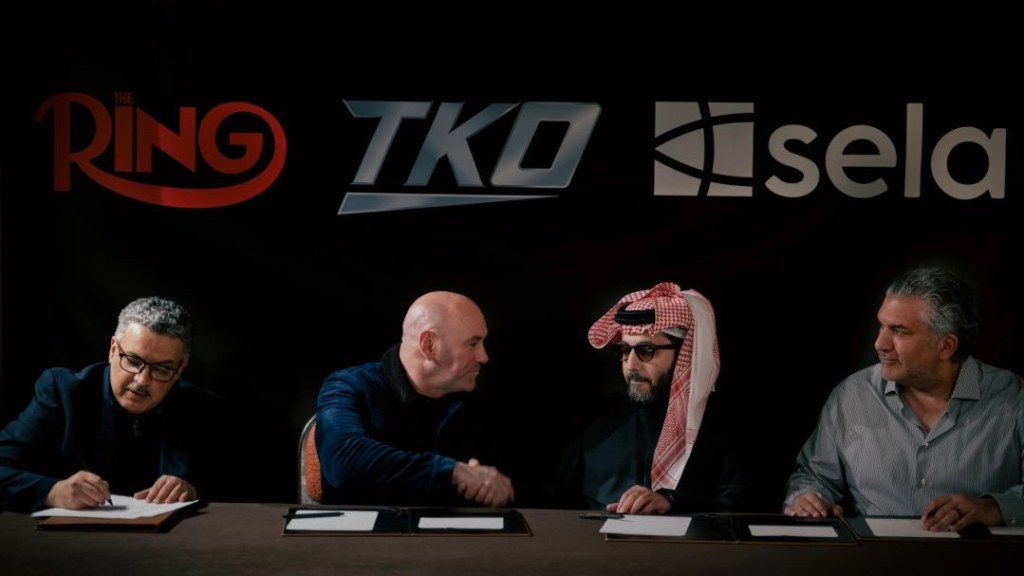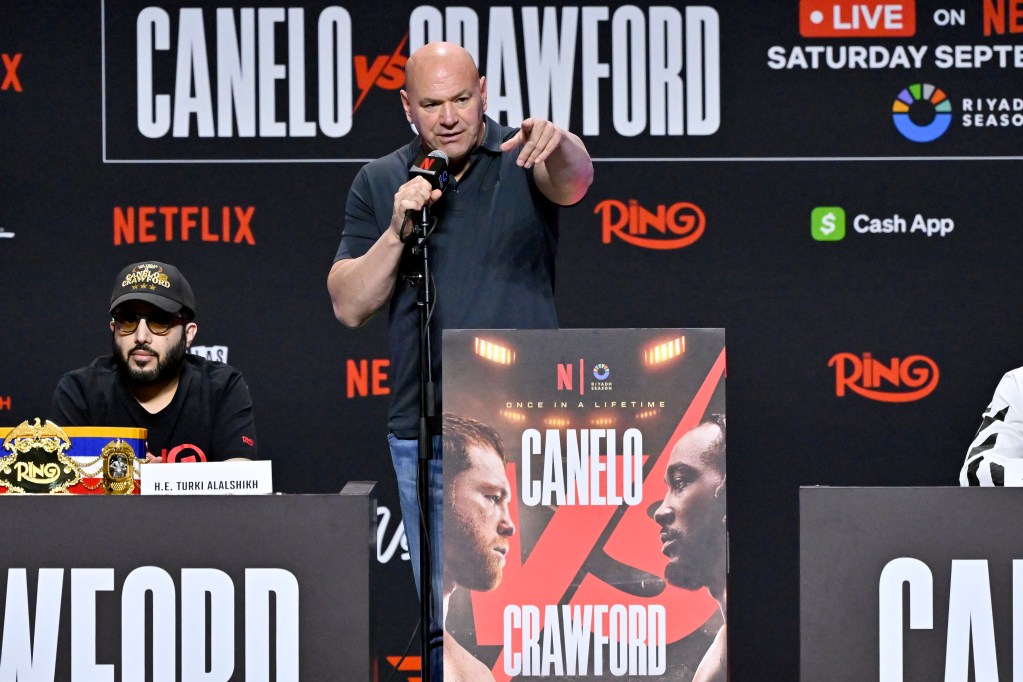There’s been plenty of noise about the launch of Dana White’s Zuffa Boxing — much of it coming from White himself, the suits at TKO Group Holdings, Inc. (owners of WWE, UFC, and now Zuffa Boxing), and their partners at Sela, a Saudi Arabian company known for building and operating massive sports and entertainment ventures.
But as usual with anything attached to White, the finer details the spectacle tends to drown out the details. And the finer details that determine whether this is a serious long-term player or just another headline grab often get lost. For fighters who haven’t been approached by Zuffa Boxing but are curious about what it really is, this piece aims to fill in some of the gaps that haven’t been made public and help you decide whether it’s worth answering that call if it comes.
The Muhammad Ali Boxing Reform Act Conversation
Since the announcement of Zuffa Boxing earlier this year, much of the discussion has centered on the Muhammad Ali Boxing Reform Act, passed in 2000 to protect professional boxers’ rights and welfare while promoting transparency and integrity in the sport. Many questioned why there was a push to alter the Ali Act, and the answer soon became clear.
TKO, Sela, and Zuffa plan to collaborate on creating a boxing league within their organization that operates independently of the four major sanctioning bodies, with its own rankings and titles. In July, the office of Georgia Congressman Brian Jack issued a press release introducing the “Muhammad Ali American Boxing Revival Act (H.R. 4624).” Under this proposed legislation, Zuffa Boxing—operating under TKO and Sela—would be authorized to establish its own rankings and world titles without oversight from the existing sanctioning bodies. The following are some key highlights outlining how this system would function:
“This legislation allows for the creation of alternative systems called Unified Boxing Organizations (UBOs) that would provide professional boxers more opportunities, better pay, and greater health and safety protections.”
“The UBO system would not replace the current structure involving sanctioning organizations. UBOs would be a separate, parallel system that would produce more events and give professional boxers additional choice and opportunities to compete.”
“Boxers would have the freedom to choose which of the two systems – the sanctioning organizations model or the UBO model – is best for them.”
In order for Zuffa Boxing to have their way, the Revival Act has to pass first. The deeper motivations behind their push for reform remain largely a matter of speculation.
Is Zuffa Boxing A Blend of Don King Productions & Premier Boxing Champions (PBC)?
It’s worth remembering that one of the main reasons the Ali Act was enacted in 2000 was to curb the unchecked power of promoters dominating the sport. Don King was one of the most notorious examples—so much so that, despite widespread criticism of his influence, he was inducted into the International Boxing Hall of Fame in 1997.
Don King Productions (DKP) had been gaining momentum in the early 1980s, well before Mike Tyson’s signing in 1985, as Don King had already cemented his position in the boxing world. In 1989, former two-time heavyweight champion Tim Witherspoon filed a lawsuit against King and his stepson, Carl King—owner of Elite Sports and Entertainment Management—alleging business malpractice. Witherspoon claimed that after King purchased his contract, he was coerced into signing a management deal with Carl King that required him to forfeit 50% of his earnings before even being offered a fight through DKP.
 Photo Credit: @realcarlking
Photo Credit: @realcarlking
This was business as usual for Don King and his stepson Carl throughout their years working together. The two frequently appeared in court, including as recently as 2013, when former WBC heavyweight champion Bermane Stiverne sued them for alleged violations of the Ali Act. Stiverne claimed he was pressured into signing with Carl King in order to secure fights through DKP. Although the case was eventually settled, it served as a clear example of how the Ali Act could be used to protect fighters from exploitative promotional practices.
In recent years, business mogul Al Haymon—owner of Haymon Sports LLC and Premier Boxing Champions—is also an advisor to the fighters signed to his company, but the situation is different enough to keep him out of court:
One 2014 article written by veteran investigative journalist Thomas Hauser clarified:
“Haymon signs fighters to an ‘Exclusive Advisory Agreement’ that gives his corporation the exclusive right to render services in securing the boxer’s participation in professional boxing matches, exhibitions, entertainment performances, personal appearances, endorsements, and sponsorship opportunities that arise out of the fighter’s boxing career […] In return, Haymon is required to (a) use his “best efforts” to secure remunerative boxing matches for the boxer; (b) advise and counsel the boxer in the overall development of his career; (c) secure proper training facilities and equipment for the boxer; (d) publicize and promote the talents and abilities of the boxer in the media; and (e) attempt to secure commercial endorsements, personal appearances, and entertainment opportunities for the boxer.”
Hauser also notes in his article that Al Haymon typically charged “ten to fifteen percent of a fighter’s purse for his services.” Although this report is more than a decade old, it offers a glimpse into the business model of that era. According to two separate sources who have worked with Haymon, one stated that “Haymon’s cut never came out of the fighter’s purse, but from the overall earnings of the event,” while another explained that Haymon would “receive his cut only after a pay-per-view reached a certain threshold.” That threshold wasn’t specified but aligns with what Hauser reported in 2014.
One advisory contract proposed to a fighter obtained by FightsATW suggests a framework that would be permissible under the proposed Revival Act but might raise concerns under the current Ali Act.

According to multiple anonymous sources—who spoke on condition of anonymity due to fear of retaliation within the boxing industry—fighters signing with Zuffa are required to first enter into an advisory agreement with Realm Sports, LLC, a sports consulting and management agency. Research into Realm Sports, LLC shows that Sam Katkovski, of Churchill Management and formerly of Ring City, is associated with the advisory company that fighters must sign with for an initial four-year term. Below are some of the key provisions outlined in this advisory agreement concerning responsibilities and extensions:
ADVISOR ROLE AND RESPONSIBILITIES – Advisor hereby agrees to (i) advise and counsel Fighter in the development and advancement of Fighter’s professional boxing career; (ii) exercise commercially reasonable efforts to advise and counsel Fighter regarding promotional deal proposals, remunerative boxing contests and/or exhibitions; (iii) identify proper training facilities and equipment for Fighter; and (iv) publicize and promote the talents and abilities of Fighter through the various forms of media.
In furtherance of the rights granted to Advisor by Fighter, during the Term, Fighter hereby authorizes Advisor to represent and negotiate contracts on behalf of Fighter in connection with Boxing Activities; provided, however, in no event shall Advisor (a) be authorized to execute any contracts on Fighter’s behalf, or (b) make any commitments to which Fighter is bound, without the prior written consent of Fighter.
COMPENSATION – In consideration of Advisor’s services hereunder, Fighter agrees to pay to Advisor, as and when received by Fighter (or on account of Fighter), during the Term hereof, a commission (the “Commissions”) equal to fifteen percent (15%) of all monies and remuneration, whether based on agreements and/or activities entered into or taking place during the Term, as a result of Fighter’s Boxing Activities (collectively, “Gross Boxing Earnings”).
(Editor’s Note: As with any proposal, the terms are negotiable. The percentage mentioned here is not necessarily fixed and can vary on a case-by-case basis.)
In short, if you already have internal representation—whether a manager, lawyer, or both—you’ll need to factor in an additional 15 percent, or whatever rate is negotiated, to account for the mandatory advisory deal.
Once that agreement is in place, the next step is the Zuffa Boxing contract itself, issued by Hualapai Ventures Inc. in Beverly Hills, California. The company is led by former Top Rank attorney Harrison Whitman and CAA (Creative Artists Agency) agent Ishmael Hinson, and it functions as the primary facilitator for the TKO boxing venture overseen by Dana White and Zuffa Boxing.
“[Dana White] robs fighters left, right, and center, you could say, allegedly, right?
He’ll talk about how he lost a million dollars in one night, money that he’s robbing from fighters.”@PaulMalignaggi isn’t a fan of Dana White’s involvement in boxing. pic.twitter.com/8nWLQ5e2is
— Ariel Helwani (@arielhelwani) October 14, 2025
The Zuffa Boxing contract, which leaked on social media earlier this year, outlines a three-year, exclusive agreement with the company—comprising Zuffa Boxing, TKO, and Sela—at the following rates:
Initial Payment: $5,000 within three (3) of the Effective Date.
Bout Payment: Payment for each bout shall be as follows: $50,000 when ranked by Company No. 5 to No. 10; $100,000 when ranked by Company No. 2 to No. 4; $250,000 when challenging for Company championship; $500,000 when defending Company championship; or When not ranked in Company’s Top 10, $15,000 for a ten-round bout.
PPV Bouts: When Boxer participates in a Bout which is the main event of a Company event and distributed on pay-per-view in the United States, the Parties shall agree on a guaranteed purse and/or a net profit participation.
Third Party Bouts: If Company secures opportunities for Boxer to participate on third party’s events (e.g., Riyadh Season events), Boxer shall be entitled to Ninety percent (90%) of the fee paid to the Company for Boxer’s participation.
Frequency of Bouts: The Company shall use best efforts to offer Boxer the opportunity to participate in Bouts every five (5) months during the Term commencing with the first Bout.
A few additional details are worth noting. If a boxer holds a company championship title at the end of their contract term, the agreement automatically extends until the fighter competes in three more bouts. The contract also specifies that fighters will receive 25% of merchandise royalties based on net revenue. (Editor’s Note: As mentioned earlier, all contracts are subject to negotiation, so these figures may vary from fighter to fighter. FightsATW reached out to Zuffa Boxing for a comment but has not received a response.)
Taken together, this shows that the TKO, Sela, and Zuffa Boxing partnership intends to keep not only rankings and titles under their control but also the broader business structure governing advisory and promotional agreements. There has also been curiosity about the lack of publicly released financial details surrounding the TKO–Sela–Zuffa Boxing media rights deal with Paramount Skydance. Keeping those numbers private could give the group more flexibility when negotiating fighter salaries. (Editor’s Note: FightsATW reached out to Paramount Skydance for comment on the Zuffa Boxing media rights deal but has not yet received a response.)
Is There Going To Be An Appetite For This Structure?
“The reality is, no fighter with any ambition wants to fight for a Zuffa boxing belt. I’m sorry.
I’m doubling down. I’m all about the belts… I don’t want a new belt, I don’t wanna change the ring, I don’t want a funky canvas cover. I’m going boxing.” @EddieHearn pic.twitter.com/paiamvXQGA
— Ariel Helwani (@arielhelwani) October 8, 2025
When considering this new league—or whatever name it ultimately takes—you can’t help but wonder whether fighters will actually sign with Zuffa Boxing. The answer is likely yes, and the reason is simple: what other realistic options do they have? For fighters currently without a promoter, the marketplace is limited.
Over the past five years, Premier Boxing Champions (PBC), owned by Haymon Sports LLC, made its biggest splash by signing Saul “Canelo” Álvarez in 2023. Golden Boy Promotions has been moderately active, signing or re-signing six fighters this year alone, including amateur standout Omari Jones in June. Top Rank has shifted its focus toward cost-efficient prospects with strong amateur pedigrees—fighters like Scooter Davis, Emmanuel Chance, and Julious Ballo—but the company is still searching for a new media rights partner. Overseas, Matchroom Sport (home to Ben Whittaker and Jaron Ennis) and Queensberry Promotions (featuring Joshua Buatsi and Lewis Richardson) are concentrating on fighters who can generate immediate returns, whether through event sales or social media reach.
Against that backdrop, Zuffa Boxing suddenly looks like a viable opportunity. For many fighters, it may be a better path than staying independent and hoping to land a spot on a card or serve as a high-profile B-side opponent. White has said in interviews that between 200 and 450 fighters are being courted, and the timing couldn’t be better for Zuffa Boxing to fill its roster.
Still, not everyone is convinced. Matchroom Boxing’s Eddie Hearn has publicly expressed skepticism, suggesting that fighters will hesitate to sign with Zuffa Boxing because of the financial terms outlined earlier.
In an appearance on Ariel Helwani’s podcast, Hearn said: “The reality is, no fighter with any ambition wants to fight for a Zuffa Boxing belt. I’m sorry. It will just be fighters that have a great opportunity to make some money, or someone that has sold out within the sport.”
The @MMAFA has put out a press release, signed by everyone involved with the antitrust cases & coinciding with the distribution of the settlement fund for Le v Zuffa.”We’ve proven that a handful of stubborn fighters can fight and win on behalf of the 1,121 members of the class” pic.twitter.com/UKEcO2m5O7
— John S. Nash (@heynottheface) October 14, 2025
Heading into 2026, this is shaping up to be one of the most intriguing debates in boxing. Will the Ali Revival Act pass, and how will Zuffa Boxing transform the sport, as White has repeatedly promised? Since its introduction in July by Congressman Brian Jack, the Ali Revival Act has gained bipartisan support, with four Republican cosponsors—Addison P. McDowell (NC), Christopher H. Smith (NJ), Derek Schmidt (KS), and Jefferson Van Drew (NJ)—and four Democratic cosponsors—Sharice Davids (KS), Steven Horsford (NV), Haley M. Stevens (MI), and Shomari Figures (AL). While there haven’t been any new updates on the bill, FightsATW will continue to monitor its progress closely.
Ultimately, the decision comes down to the fighters and what they consider most important for their careers and personal circumstances. The goal of this article is to provide both fighters and fans with information that hasn’t been publicly available, so they can form their own opinions. Having another boxing platform isn’t inherently negative; the hope is that as Zuffa Boxing implements its changes, transparency doesn’t get lost in the process.
Abraham Gonzalez is the founder of FightsATW. His journalistic work has been published and used across several platforms to include online, network TV and promotional companies. He is an American Public University alumnus and a member of the Boxing Writers Association of America (BWAA). Abraham was the Managing Editor for NYFights, Big Fight Weekend, contributed to FanSidedMMA and ProBoxTV.
Related
Discover more from Fights Around The World
Subscribe to get the latest posts sent to your email.

